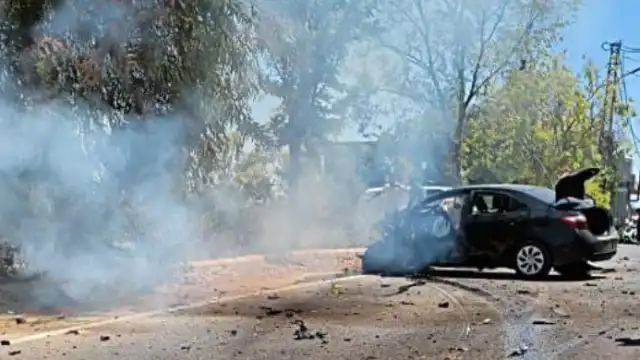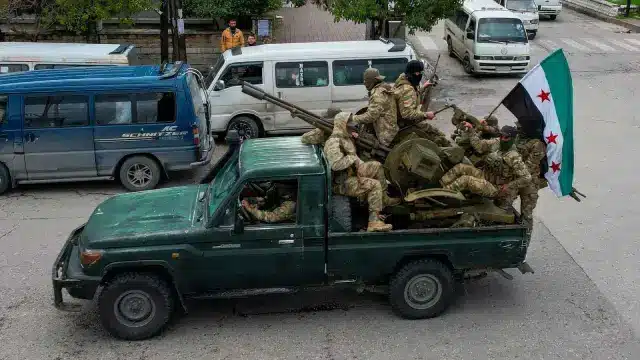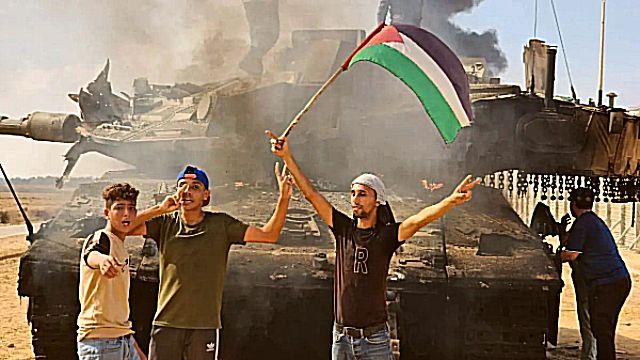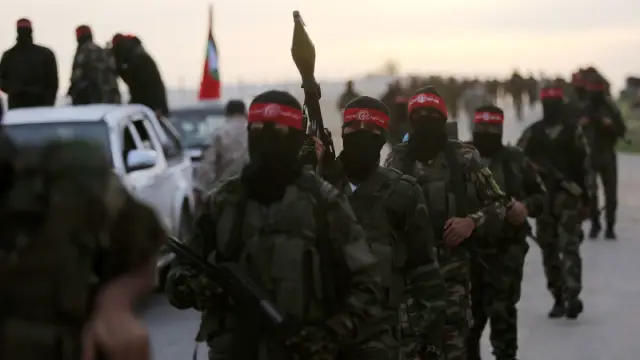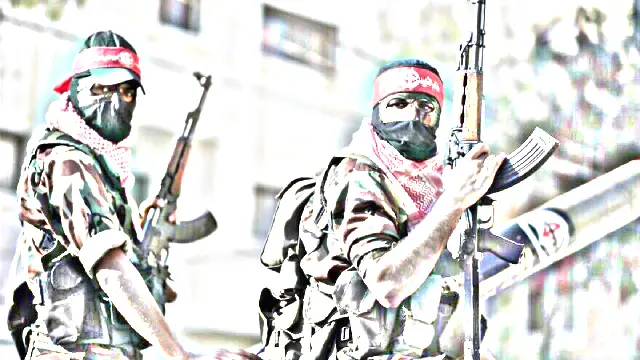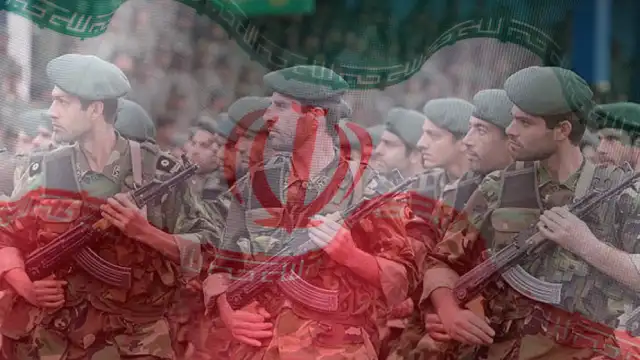Israeli military operations continue across West Asia with American backing, even as President Donald Trump pursues a 60-day ceasefire between Tel Aviv and Hamas. Since July 3rd, Israel has repeatedly launched attacks against Lebanon and Syria, breaching their sovereignty and causing casualties.
Israel attacks Lebanon
Israel has launched attacks on Lebanon while violating its ceasefire agreement with Hezbollah, targeting resistance leaders and operatives.
In Syria, Israeli forces struck units loyal to the ousted president, Dr Bashar al-Assad‘s Ba’ath Socialist Party.
Both countries’ governments failed to respond to these violations.
Lebanon suffered the heaviest bombardment on Thursday, followed by Israeli attacks on Friday and Saturday.
In a recent attack, one person was killed in an Israeli attack on his home in Shebaa on Saturday afternoon.
On Saturday morning, an Israeli drone strike took place in Bint Jbril border city, targeting a car and a motorcycle.
Lebanese sources report that Israeli engineering units struck southern Lebanon on July 3rd.
Israeli forces bypassed UN troops and the Lebanese Army without resistance, demolishing a house in Kfarkila, nearly a kilometre inside Lebanese territory.
Hezbollah withdrew from Kfarkila from the beginning of the truce on October 27th 2024, and the Lebanese Army entered there on February 18th 2025.
Israel still attacks this town in Lebanon.
Israel has attacked this town in Lebanon 107 times.
It claims targeting weapons cache in the town, left by the Hezbollah, to prevent the Lebanese resistance from returning.
Similarly, Israel attacks all territories south of the Litani in Lebanon under the guise of destroying Hezbollah bases.
There have been 90 attacks on Mays al-Jabal, 84 on Yaroun, and many in other places.
In Khaldeh, two Israeli-operated American MQ-9 drones struck a vehicle carrying Qassem al-Husseini on Thursday.
The attack occurred on a busy highway amid heavy civilian traffic, as CCTV footage shows.
Saudi Arabian media reported that Israel claimed responsibility for the strike.
While Israel gloated that Mr Husseini was a Hezbollah official, the Lebanese resistance remained mum.
Lebanese sources close to the resistance reveal that Mr Husseini could’ve been an arms dealer with ties to Hezbollah but wasn’t a part of the organisation.
Hezbollah didn’t mourn his killing, unlike other operatives
Israel also targeted locations near Nabatieh city.
On Friday, July 4th, Israeli forces shelled a house in Aita al-Shaab.
The same building had been struck with sound grenades on Thursday.
Although Aita lies south of the Litani River and contains no weapons caches, Israel continues attacking it and other Lebanese locations, violating Resolution 1701 with impunity.
Forces conducted widespread attacks on Dier Siryan and Zawtar, with additional strikes on Zleya in the Beqaa Valley.
Lebanese leadership maintains silence on sovereignty breaches
While Israel launched multiple attacks targeting several locations in Lebanon, President Joseph Aoun and Prime Minister Nawaf Salam remained silent.
Neither leader criticised the aggression that violates Lebanese sovereignty and UN Security Council Resolution 1701.
Critics argue that Mr Aoun and Mr Salam maintain this silence under American pressure.
Moreover, their agenda to demilitarise the resistance, take away weapons from Hezbollah, also plays a key role behind the silence.
On Friday, a video went viral on social media showing several young Hezbollah supporters holding guns, raising slogans.
These armed youths didn’t cover their faces, which is a risky thing for the Hezbollah, which remains under Israeli radar
Soon after the video went viral, Mr Salam condemned the act.
It raises questions on Beirut’s priorities when Israel has launched multiple attacks on Lebanon
Syrian operations expand Israeli reach
Syria’s new government under former al-Qaeda operative Ahmed Hussein al-Sharaa (known as Abu Mohammad al-Julani) has permitted Israeli raids across Syrian territory.
These operations coincide with discussions about conceding the occupied Golan Heights to Tel Aviv.
On Friday, Israeli special forces conducted helicopter-borne raids near Yafour, a resort town 10km west of Damascus, SouthFront reports citing Syrian sources.
Israeli forces, transported by at least three helicopters, landed at a Republican Guards base on Yafour’s outskirts. They operated for approximately five hours before withdrawing.
Simultaneously, Israeli special forces appeared in Rakhlah, 10km west of Yafour on Lebanon’s border.
Troops were sighted at Jandal Castle, 10km south of Rakhlah.
These reports indicate that Israel has not only launched attacks on Lebanon but also launched large-scale raids, deploying air and ground forces across the Yafour-Rakhlah-Jandal Castle triangle.
Mr Julani’s government certainly knows about these operations.
Since toppling Dr Assad’s administration, Mr Julani’s al-Qaeda-affiliated regime has offered little resistance to Israeli aggression.
The Syrian government appears complicit, for significant reasons.
Strategic targeting of Ba’athist strongholds
Yafour housed many senior officials from Dr Assad’s Ba’ath Socialist government, including Maher al-Assad, the former president’s brother.
Key bases hosting air defences and military equipment operate in areas where Israeli forces have been active.
These raids form part of Israel’s Syrian military campaign, which targeted and destroyed much of the country’s defence systems after Mr Julani usurped power.
The attacks, particularly those hunting Ba’ath Socialists, coincide with Mr Julani’s government approaching an unprecedented peace deal with Israel.
Israeli media reports suggest that Julani’s regime has agreed to cede three-quarters of the Golan Heights in exchange for one-third of the Heights plus Lebanon’s Tripoli city and other northern Lebanese and Beqaa Valley regions.
Israel’s far-right i24News claimed on Thursday, citing a source close to Julani, that Syria has presented these demands to Tel Aviv.
Mr Julani’s regime considers these territories wrongly transferred to Lebanon during the French Mandate.
Having eliminated opposition through large-scale violence, Mr Julani has consolidated power while guaranteeing Israeli security.
As West Asia’s geopolitical situation unfolds, Israel’s territorial expansion depends on accommodating Lebanon’s and Syria’s compliant leadership.
Join our channels on Telegram and WhatsApp to receive geopolitical updates, videos and more.

